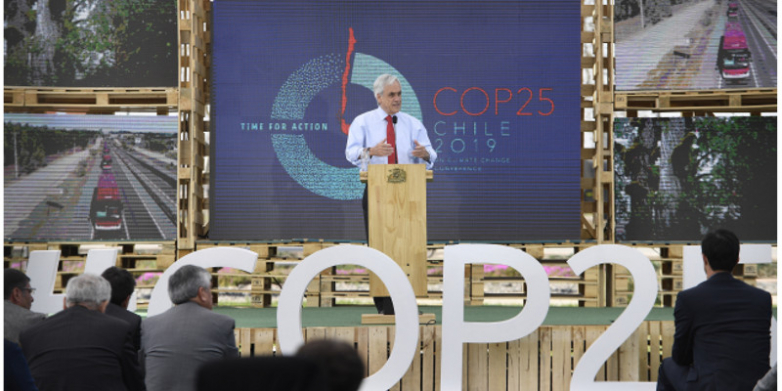COP, climate, class struggle?
Nov 1, 2019 07:59 PM ET
- The World Climate Summit in Santiago de Chile, set to be held in just a few weeks, has just been cancelled. Against a background of social protests in the country, concerns have recently grown as to whether logistics and security could be guaranteed for the event. Nevertheless, social problems and environmental protection must not be played off against each other: Both are closely linked to the economic paradigms of recent decades.

Almost everything was ready. Within the space of a few months, a tent city had been erected in Chile’s capital, Santiago, where the international climate conference – COP25 – was to take place between December 2-13. Chile had stepped in at short notice, after Brazil’s ultra-right government withdrew its invitation to the climate summit. Until recently, Chile was regarded as an anchor of stability in the region and an active member of multilateral bodies. But then the country woke up and began chanting “Chile despertó”.
The protests were ignited by an increase in Metro prices by the equivalent of a few euro cents. First, school pupils and university students responded with flash mobs over the access restrictions; then came the outbreak of violent protests. Metro stations, office towers and barricades were set on fire. For around two weeks, the country has seen civil unrest, with more and more social movements joining the protests. At the same time, there are alarming reports of human rights violations by the security forces.
The demonstrators are concerned with the increasing gap between rising costs of living and declining wages in real terms. In an article by the Guardian, the causes of the protests are aptly summarized as “a reflection of discontent with the material, political and social inequalities engendered by the economic model imposed by the country’s former dictator Augusto Pinochet. That model deregulated markets and privatized social security systems, and was widely emulated by other countries in the region.” And so they chant at the demonstrations: “It’s not 30 pesos, it’s 30 years”. The most important demands of the demonstrators are higher wages and pensions, as well as better health care for all.
There are no demands for environmental protection in the surveys or on the protest signs. Does Bertolt Brecht’s old dictum apply once again: “First comes the food, then the morals”? The Chilean example in particular shows that social issues and environmental protection are very closely linked. Many of Chile’s social problems are also due to a massive economic use of the natural resources.
Just to name a few examples: In Chile, even the right to use water have been privatized, so that many large-scale consumers have secured the water rights of rivers. As a result, in many regions hardly any water remains for small farmers. And the forest industry is relying on monocultures, which have promoted the massive forest fires of recent years. One focus of this sector is the conflict-prone Araucania region, which has a high proportion of indigenous people. With regard to climate change, numerous studies also show that the world’s poorest are the most severely affected by its effects.
Chile is considered the laboratory of neoliberalism. Deregulation and privatization were pushed to extremes here, even further than in the United States under President Ronald Reagan (today: Donald Trump) and in Margaret Thatcher’s Great Britain (today: Brexit). The social protests in Chile are the local response to the belief that the invisible hand of the market leads to the best solutions.
The same applies to environmental and climate protection. Nothing will improve without clear targets, because there is no market for environmental pollution and no market for social peace. As societies, we must agree on rules for our economic system. At the moment, the main issue is to hedge market economy. The question is whether we realize this fully before it burns. Perhaps the shock of the cancellation of the COP25 will take us a little further towards this understanding.
About the author
Stephan Franz works as a freelance consultant. He is currently located in Santiago de Chile, and was tasked with covering COP25 for pv magazine before its cancellation. Since 2007, he has been preparing market analyses in the fields of renewable energies and distributed energy systems.
Also read
SOLAR DIRECTORY
Solar Installers, Manufacturers
